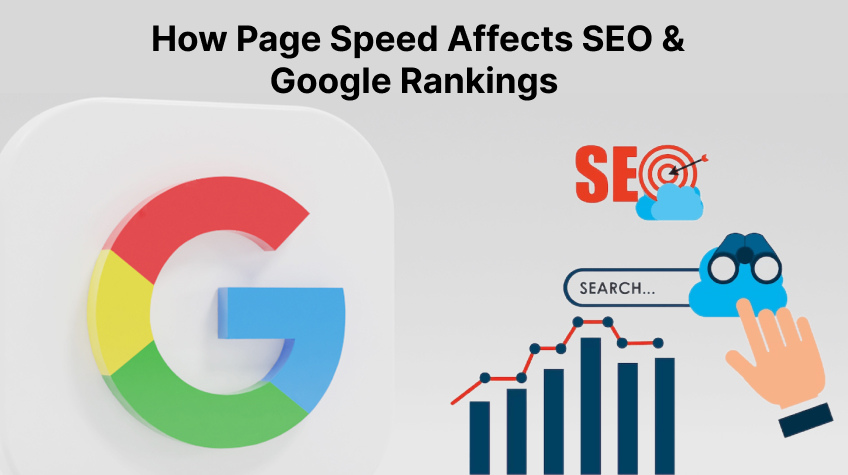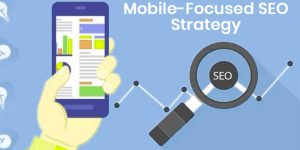
There has been a lot of confusion following the last Google insights on what makes a good page experience and its impact on SEO and Google Rankings. For some people, this meant that things like Core Web Vitals, i.e., load speed, no longer matter for search rankings, but this couldn’t be more wrong. In fact, it turns out that there is a great deal of connection between page speed and SEO that can affect your web visibility. How is that?
Well, for Google rankings, page experience is a top priority, and your loading speed can be a major factor that disrupts or enhances user experience. Yet, only 15% of websites have loading speeds that are within acceptable limits. This is not surprising as it can be challenging to know exactly how page speed rank affects your SEO and what you can do to make a positive difference. This article throws some light on these issues and provides useful tips to guide you.
Page Speed Ranking Factors: What Are Google Policies and How Does It Affect Me?
It’s 2026, and believe it or not, Google’s policies around speed ranking factors and how that affects SEO is still a hot topic for debate. Since 2018, Google has been clear about its stance on page speed both for mobile searches and desktop searches. This requires a site to load in less than 3 seconds on mobile devices and preferably even faster on desktops. But for this to count towards your SEO ranking, your web pages must still have quality content that is relevant to a searcher’s query. So what does this mean for you?
You need to carefully consider a lot of factors that can impact your page speed when setting up your website. Your file types, their size, choice of hosting or server, and plugins, to mention a few. But it doesn’t end there. Say you decide to carry out a guest blogging campaign to improve your backlink profile and boost SEO. In this case, you still have to assess the quality of the selected websites, including their UX and, of course, the page speed. Only then can you choose the best sites. The idea is to go for quality websites in your niche that also load fast as they have higher search rankings, which also has an impact on your own visibility.
Important Strategies for Page Speed Optimization
Page speed optimization is vital for web developers looking to reach more clients or marketers working to expand their target market. The more online presence and visibility you have, the easier it is to build a better brand reputation and hit your targets. Here are some ideas you can start implementing right away.
➤ Skip the Free Hosting and Go for the Reliable Services
This is one of the basic yet important steps you can take to improve your page speed and SEO rankings right at the beginning of your journey as a web developer or marketer. And yes, while your hosting service might not directly impact your speed, the quality of service and features they offer do have an effect. How so?
The problem with free hosting services is that they also get a lot of traffic, and this can translate into too much weight on the bandwidth. To cope, many free services limit the number of visitors your site can get, which means terrible load times if you exceed this number. By going for a paid web hosting service, you get to skip all that hassle.
Besides, it is more likely that they have better support services and more security features, which is important if you care about helping your web visitors feel safe about their online privacy. This is why NextDoorSec advocates for putting yourself in your customers’ shoes to help you understand how best to market to them and make products that align with their needs. So, take the time to do thorough research to find the best fit for you.
➤ Consider Speed When Choosing Files
Ok, this one is pretty common but still bears repeating, as there is no way to avoid lagging if you ignore this point. You want to pay attention to file types and sizes and how much they can slow down your loading time. Since the larger files take longer to process, you want to minify files, compress images, and try not to use too many JavaScript codes for cool animation effects. Another good idea is to avoid hotlinking as much as possible, as they can overstretch your bandwidth usage and cripple your loading speed, among other issues.
But there are also other steps you can take to optimize your page speed and SEO rankings at the same time. You can use priority hints to highlight the most important files on your web pages. This way, those get rendered faster on the browser. Some developers even choose to use native lazy loading to enhance the page speed, especially on mobile devices. Remember that the goal is not to completely sacrifice beauty for utility but to improve user experience in every way possible and signal to the search engine that you understand the benefits and importance of mobile-first web design and how it affects speed.
➤ Monitor Your Performance
If you truly care about page speed optimization, you must constantly track your web performance. You can use Google Search Console (GSC) and even integrate it with any third-party app of your choice to run a site audit and find any issues that could be affecting your load speed negatively. Looking at the experience report in GSC can tell you your Core Web Vitals and help you identify which pages are loading slowly.
Since Google uses this report as a ranking signal, you want to track it regularly and address issues as quickly as possible. Also, many savvy marketers recommend monitoring the mobile index even more thoroughly, and some provide additional useful tips and details to guide you through the process.
Bonus Tips to Improve Your Page Speed Rank
A higher page speed rank can significantly increase your lead generation and conversion rates. That’s why it is so crucial to avoid anything that can cause a bad user experience and lead to unintended results. Here are some tips you can apply to get a better outcome:
- When using themes, choose the lightweight ones, preferably those without too many added animations.
- The same goes for plugins. It’s best to use as few plugins as possible, so try focusing on essentials only.
- Use CDNs to improve latency. If possible, choose advanced CDNs that allow selective caching of dynamic content.
- Track your performance, and if you see any serious issues without a logical reason, consider updating to a server with faster response times.
Conclusion
Understanding the relationship between page speed and SEO is a crucial part of impactful web development and digital marketing. Whether you aim to sell products through your site or share your knowledge and industry insights in your blog, it is important to focus on your users’ experience. By trying the suggestions shown here, you will be able to enhance your page speed rank and, as a result, get better search rankings and boost your web traffic.






